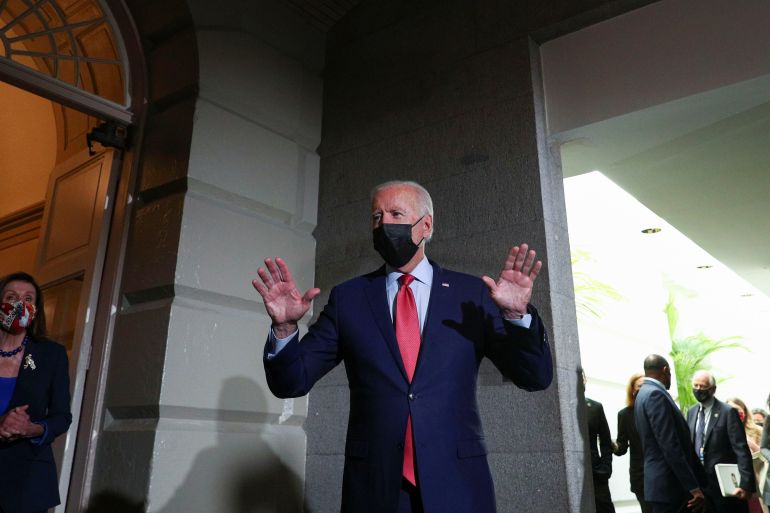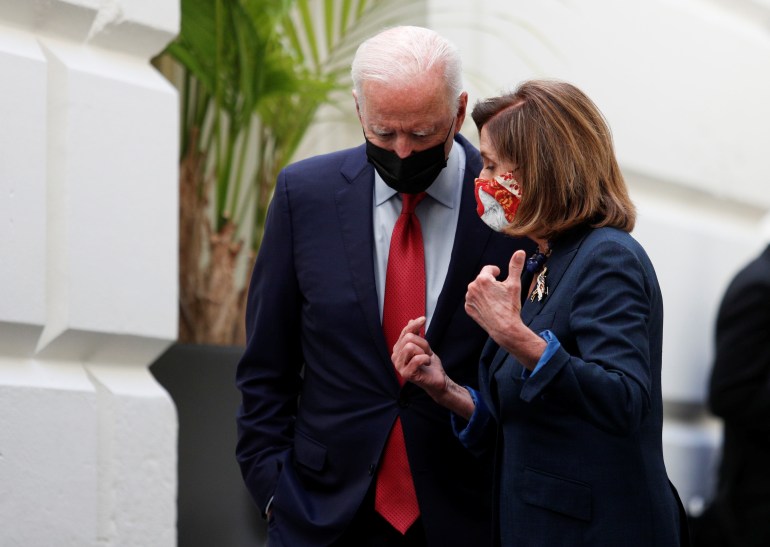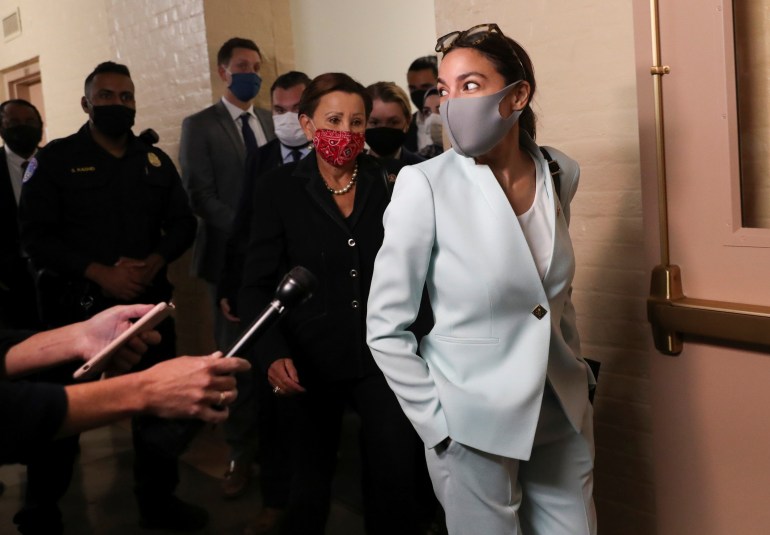Biden: Will ‘work like hell’ to pass infra, social safety bills
US President Joe Biden has acknowledged frustrations over divisions in his Democratic Party over the two key bills.

US President Joe Biden has said he is going to “work like hell” to get an infrastructure bill and a multitrillion-dollar social spending bill passed through Congress. He, however, refrained from laying out a new deadline.
“Everybody’s frustrated, it’s part of being in government, being frustrated,” Biden told reporters on Saturday, acknowledging frustrations over divisions in his Democratic Party.
Keep reading
list of 3 itemsUS Democrats seek deal on Biden’s $3.5-trillion social agenda
Vote on Biden’s twin spending bills delayed anew amid impasse
Biden visited the Capitol on Friday to try to end a fight between moderates and left-leaning progressives in the Democratic Party that has threatened the two bills that make up the core of his domestic agenda.
The president on Saturday acknowledged criticism that he had not done more to gin up support for the bills by travelling around the country. He said there were many reasons for that, including his focus on hurricane and storm damage during recent trips, among other things.
Biden said he would be travelling to make “the case why it’s so important” to pass the bills and to make clear what is in them. He said the bills were designed to make life easier for common Americans by making childcare affordable, for example.

“There’s nothing in any of these pieces of legislation that’s radical, that is unreasonable,” Biden said. “I’m going to try to sell what I think the people, the American people, will buy.”
Biden expressed confidence that both bills would get passed but declined to set a deadline, such as the November Thanksgiving holiday, for when that would happen.
“I believe I can get this done,” Biden said.
Moderate vs left-leaning progressives
Moderate Democratic lawmakers wanted an immediate vote on a $1 trillion infrastructure bill in the House of Representatives that has already passed the Senate, while progressives want to wait until there is agreement on a sweeping $3.5 trillion bill to bolster social spending and fight climate change.
House of Representatives Speaker Nancy Pelosi has said the infrastructure bill cannot wait for the social spending bill.
She told Democratic lawmakers in a letter on Saturday that the House must approve the infrastructure bill “well before” October 31, when highway funding legislation is set to expire. She said talks are continuing over the social spending bill. “We will and must pass both bills soon.”

Biden, a former senator who is deeply familiar with the legislative process, told his caucus on Friday that they could delay a vote on the smaller bill and sharply scale back the larger one to about $2 trillion.
White House spokeswoman Jen Psaki said the president and his team would continue to engage with members of the House and the Senate throughout the weekend.
“And he looks forward to not only welcoming members to the White House next week, but also travelling the country to make the case for his bold and ambitious agenda,” she said.
Meanwhile, the president said on Saturday he hoped Republicans would not use a filibuster in the Senate to block efforts to raise the debt ceiling.
“That would be totally unconscionable,” he said.
The Treasury Department estimates that it has until about October 18 for the government’s $28.4 trillion borrowing limit to be raised by Congress or risk a debt default that could lead to potentially catastrophic economic consequences.